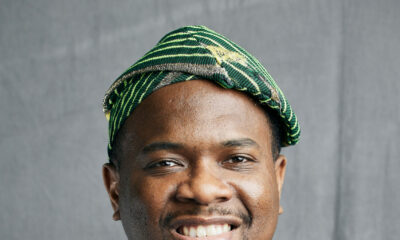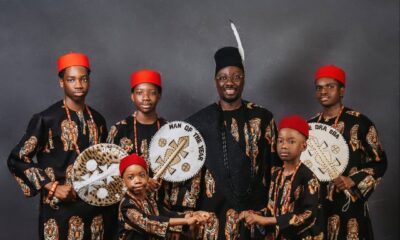Features
Chaste Inegbedion: Exploring The Importance of Fatherhood in “Bad Boys”

Bad Boys on Instagram
The “Bad Boys” series, starring Will Smith as Mike Lowrey and Martin Lawrence as Marcus Burnett, is known for its explosive action sequences, witty banter, and high-octane Miami vibes. But beneath the car chases and shootouts lies a surprisingly nuanced portrayal of fatherhood, albeit unconventional.
Mike Lowrey represents the classic lone wolf archetype. He is fiercely independent, career-driven, and appears to avoid commitment. However, as the series unfolds, we see a hidden vulnerability when it comes to fatherhood. Mike forms a strong bond with Marcus’ daughter Tiffany. He becomes a positive influence, offering guidance and support, especially when she encounters challenges with her biological father. Also, as the series progresses, we catch glimpses of Mike’s desire for a family. He expresses a longing for children in “Bad Boys II” and even considers settling down in “Bad Boys for Life.”
Meanwhile, Marcus Burnett is the epitome of a family man. He prioritises his wife, Theresa, and their children, often acting as the voice of reason amidst the chaos. Marcus constantly juggles his demanding police career with his responsibilities as a husband and father. He struggles with the guilt of missing out on family events due to work but always strives to be present for his loved ones. Marcus instils strong values in his children, teaching them the importance of hard work, integrity, and family. He serves as a positive role model, demonstrating the power of commitment and emotional connection.
In “Bad Boys,” Mike and Marcus challenge traditional stereotypes of fatherhood. Mike, despite his fear of commitment, shows love and fatherly protectiveness. Marcus, on the other hand, is a dedicated family man who also embraces his adventurous side with Mike. The movie presents a diverse portrayal of fatherhood, celebrating both the responsible family man and the one who discovers fatherly connections unexpectedly. It emphasises that there is no one right way to be a dad, and that love, support, and presence are what truly matter.
Fatherhood is a complex and ever-evolving role. Dads are no longer simply the breadwinners; they are emotional anchors, confidantes, and playmates. They play a vital role in shaping their children’s lives, from fostering a sense of security and self-worth to nurturing dreams and ambitions.
The Unique Impact of Fathers
Studies suggest a father’s absence can have negative consequences for a child’s well-being. However, the presence of a loving, engaged father can have a profoundly positive impact. Fathers bring a unique perspective and approach to parenting, often encouraging exploration, risk-taking, and independence in their children. Fatherhood is not about grand gestures or expensive gifts; it’s about the small, everyday moments of connection and care. Being a dad is about showing up, being present, and offering emotional support. Fathers play a crucial role in providing stability and support as families navigate complex social and economic landscapes. They can be advocates for their children’s education and well-being and champions for gender equality within the family.
Celebrating Fatherhood
Father’s Day is a time to celebrate the many ways fathers enrich our lives. It’s a day to express gratitude for their love, guidance, and unwavering support. Here are some tips to celebrate Father’s Day:
– Plan a special activity: Spend quality time together doing something Dad enjoys, whether it’s going for a hike, watching a game, or simply having a conversation.
– Make handmade gifts: A heartfelt card or a homemade gift can be more meaningful than anything store-bought.
– Share words of affirmation: Let Dad know how much he means to you. Take some time to express your appreciation for his presence in your life.




















